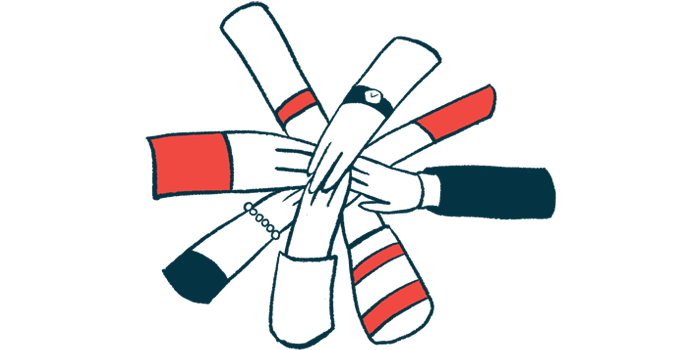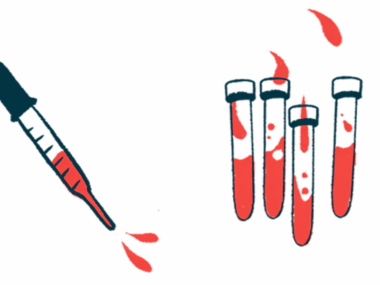Bleeding Disorders Awareness Month puts spotlight on education
National Hemophilia Foundation, Hemophilia Federation of America, others will host events, activities
Written by |

Conditions like hemophilia and von Willebrand disease are thought to affect more than 3 million U.S. residents.
Across the country, patients, caregivers, advocates, and other supporters are coming together this month for Bleeding Disorders Awareness Month (BDAM) to participate in conversations and webinars, and share information about key community topics.
Bleeding disorders impede normal blood clotting, so surgery, injury, or physical trauma can cause protracted and uncontrolled bleeding for those with the disorder.
Observed each March since 2016, the aim of BDAM is to heighten awareness among the general public, legislators, scientists, public agencies, healthcare professionals, and industry representatives.
The National Hemophilia Foundation (NHF), which is celebrating its 75th anniversary, will host its Start the Conversation campaign, encouraging families to talk about their genetic health, their history with blood or bleeding disorders, or genetic counseling. Supporters can also start conversations about the latest research, women’s health, and medical marijuana.
“Bleeding Disorders Awareness Month is once again the perfect time to start conversations about what’s most important to you,” said Leonard Valentino, MD, NHF’s CEO, in an emailed statement to Hemophilia News Today. “This month serves as a chance to raise visibility and awareness for blood/bleeding disorders and the many issues that accompany chronic conditions like mental health, health equity, access to care, and more. All community members are invited to start the conversation this month, and we can’t wait to hear what you have to say.”
Getting involved in BDAM
Getting involved in BDAM can also include joining this year’s virtual Run Red event, which seeks to raise $15,000 for the nonprofit organization. The challenge is for participants to log 7,500 steps at any time or place, whether by running, jogging, or walking, during March in honor of the NHF’s 75th anniversary. The registration fee for the event is $25 per individual and $35 for families with up to four members.
Taking part in advocacy efforts is another way to assist the bleeding disorders community. This can involve learning to lobby lawmakers about key topics, registering people to vote, and sharing personal stories about living with the disorder. Other ways to get involved include becoming familiar with the organization’s programs and resources, and sending personal narratives to [email protected] about the effect of blood disorders on patients and families. Participants in Ask a Social Worker are invited to pose questions to licensed social workers about living with a bleeding disorder. The questions should be emailed to [email protected] and could be addressed in a future organization publication.
Supporters are also encouraged to send letters about the event and community concerns to media outlets, and to ask local governments to proclaim March as BDAM.
The organization’s annual Bleeding Disorders Conference will be held Aug. 17-19 at the Gaylord National Resort & Convention Center in National Harbor, Maryland, and will include a children’s program. Registration fees start at $105 for adults. The organization is also accepting nominations for its annual annual Awards of Excellence, which recognizes notable community members or healthcare professionals. The nomination deadline is May 5 and awardees will be announced in June.
The Hemophilia Federation of America (HFA), a patient advocacy organization serving the rare bleeding disorders community with more than 50 state and local affiliations, kicked off BDAM on Rare Disease Day, Feb. 28, with part three of its “Unspeakable” webinar series.
It will feature Robert C. Cooper, the creator and executive producer of the TV miniseries “Unspeakable,” which chronicles the emergence of HIV and hepatitis in Canada in the early 1980s after many people were infected with tainted blood.
HFA is also offering downloadable graphics in English and Spanish, and information about bleeding disorders on Facebook, Instagram, and Twitter.
The 29-year-old organization is calling special attention this year to bleeding disorder community members who, because their symptoms may not be severe, are often overlooked.
“As we honor Bleeding Disorders Awareness Month, HFA continues to bring awareness and provide resources for all members of our community,” said G Shellye Horowitz, the organization’s education director, in an email.
“In 2023, we are also focusing on raising awareness for people with mild bleeding disorders, who often struggle to obtain diagnosis and access to care. Many go for years not realizing their symptoms are connected to bleeding disorders. Some are labeled as ‘only carriers’ or ‘symptomatic carriers’ when they actually have a mild disorder needing treatment. It is critical that all individuals with bleeding disorders, no matter the severity, have access to proper and timely care,” Horowitz said.
Local organizations are also marking the month. The Bleeding Disorders Association of South Carolina is offering a host of ways to participate, including wearing red, securing city and county awareness month proclamations, and attending its annual Red Tie fundraiser.
Hemophilia of Georgia is observing BDAM by asking patients, family members and caregivers to share their stories on social media, and to become a bleeding disorders advocate.
The Virginia Hemophilia Foundation will host a March 14 educational program about gene therapy in hemophilia and a March 30 presentation on bleeding disorders in the workplace.



